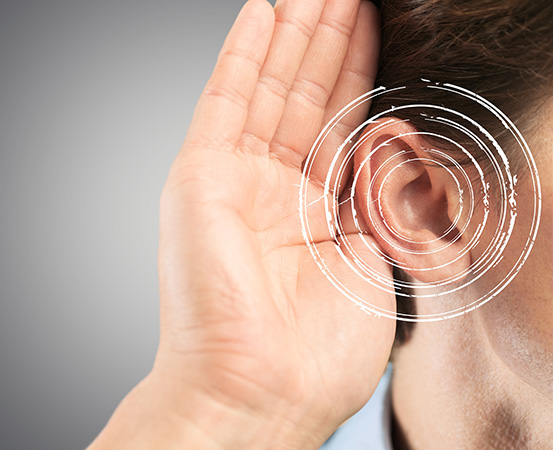
Hearing loss is often associated with ageing but experts point out that it also has a diabetic connection. Diabetes-induced nerve damage is one of the main factors that can accelerate the onset of hearing loss in people with high blood sugar. Doctors also advise that people with diabetes, especially the elderly, should not ignore any sudden deterioration in their hearing. If the problem isn’t addressed on time, it may lead to permanent hearing loss. Diabetes-induced hearing loss is called sensorineural hearing loss (SNHL), says Dr Shantanu Tandon, airway and sleep apnea specialist, Sakra World Hospital, Bengaluru.
READ MORE :
Type 1.5 diabetes: all you need to know about LADA
Can high sugar levels leave you gasping for breath?
The link between diabetes and insomnia
“What alarmed me was when a few days ago, my wife was talking to me, and I couldn’t hear or comprehend it correctly,” recalls 60-year-old Erat Mohandas, a recently retired Indian Oil official from Bengaluru who has been living with diabetes for the past fifteen years.
Mohandas approached an ENT who examined him and, finding a problem in his right ear, suggested that he get an audiometry test done. The audiometry test found initial signs of weakening of nerves due to diabetic neuropathy which was affecting his hearing. Mohandas was prescribed medication and was also asked to consult his diabetologist.
“I have been told that the timely intervention salvaged my hearing, or else negligence would have caused a permanent loss of hearing,” explains Mohandas. That’s why experts say that an annual ENT check-up is a must for diabetics.
According to Dr Alka Jha, senior consultant endocrinologist, Fortis Hospital, New Delhi, diabetes doubles the risk of hearing impairment and hearing loss. “People with prediabetes are also at a 30 per cent higher risk of hearing loss as compared to people with normal blood glucose,” she explains.
Diabetic neuropathy and hearing loss
Diabetic neuropathy mainly concerns people with long-standing diabetes. Dr Jha explains that diabetic neuropathy affects the nerves that control both sensory and movement in our body. “It also impacts the conduction ability of nerves to send signals to the brain,” she explains.
Dr Tandon says that both high and low blood sugar can cause nerve damage affecting the nerve signals travelling from the inner ear to the brain. “SNHL is a type of hearing loss that occurs due to damage to the inner ear or the nerves between the inner ear and the brain,” he explains.
The nerve cells in the cochlea (the auditory organ present in the inner ear), get damaged due to tissue ischemia (lack of blood supply to the tissue) and hypoxia (below-normal level of oxygen in the blood) and that’s how hearing gets affected.
According to Dr Jha, hearing loss is usually covert. Family members notice it first and point out this change. “Some diabetics may also experience a sudden hearing loss due to highly elevated blood glucose,” she cautions.
Cause
According to Dr Jha, the association between diabetes and hearing loss is impacted by factors like demography, environment, occupational noise exposure and metabolic abnormalities. The risk of hearing loss further increases with the presence of poor glycemic control. Dr Jha explains that sometimes, it is difficult to determine whether hearing loss is age-related or diabetes-related in the elderly.
Treatment
Experts say that while hearing loss can’t be reversed, blood sugar can be maintained as close to the target levels as possible. “If hearing loss is due to nerve damage from diabetes, treatment will also involve close monitoring of blood sugar levels,” cautions Dr Tandon.
It is advisable to go for regular check-ups with an ear specialist, diabetologist, endocrinologist and audiologist. It is also important that the person avoids any situation which can damage hearing (such as being exposed to loud noise).
Some medicines may damage hearing, so it’s best to consult a doctor about alternatives for the same.
Hearing loss assistance
Several devices and techniques can help improve hearing for SNHL, Dr Tandon says. Some people are recommended digital hearing aids while for some, cochlear implants (a hearing device that sits under the skin in the inner ear) are advised.
If the hearing nerve is not functioning effectively, auditory brainstem implants are surgically placed. “Lip reading and sign language also help to communicate effectively,” explains Dr Tandon.
It is highly recommended that people with diabetes learn how to measure and control blood pressure and cholesterol levels. “It is important to monitor your blood glucose levels (FBS/PPBS/HbA1C) apart from going for a hearing test,” says Dr Tandon.
Experts also recommend that when people are diagnosed with diabetes, they should also take a hearing test. “It is advisable that diabetics regularly test their hearing every year,” says Dr Tandon. “People can also take other steps to protect their hearing, such as using earplugs or ear defenders around loud noise,” he adds.
A word of caution from Dr Jha: Don’t ignore any symptoms, even the small ones. Discuss the symptoms with a doctor because detecting them early can prevent permanent hearing loss.
Prevention
Experts feel while check-ups and medication are important, adopting a healthy diet and lifestyle also makes a big difference. Here are some tips to prevent loss of hearing:
- Follow a diabetes meal plan after discussing it with a dietitian.
- Include a range of fruits, vegetables, lean protein, whole grains, fish, and legumes in the diet.
- Drink plenty of water and avoid beverages containing sugar.
- Limit the intake of foods high in calories, saturated fats, trans fats, added sugars, and salt.
- Exercise regularly and aim for at least 30 minutes of physical activity every day.
- Maintain moderate body weight.
- Quit smoking.
- Take the prescribed diabetes medication.
Takeaway
People with diabetes, especially the elderly, should monitor and manage their blood sugar and blood pressure. This helps prevent nerve damage, a condition that can lead to loss of hearing.

















